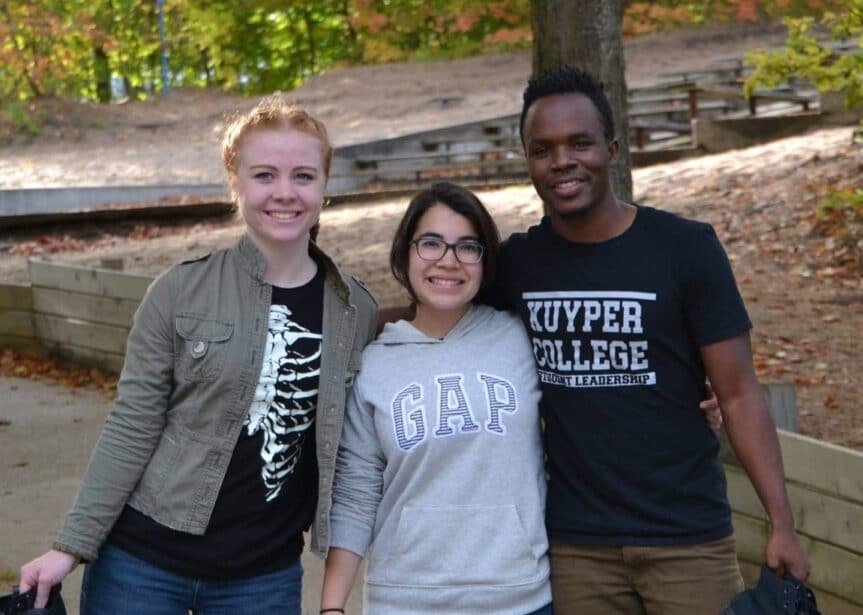The Church’s Role in Poverty Eradication
Earlier this year, Rev. Dr. Simon Thiongo published a new book, Hope for the Poor: The Role of the Church in Poverty Eradication. A 2013 Kuyper graduate, Thiongo earned graduate degrees from the Earlham School of Religion and Asbury Theological Seminary before returning to his native Kenya. There, he founded Family Empowerment Ministries Kenya (FEMK), an organization dedicated to empowering people to rise from poverty by creating communities of faith and sustainable income opportunities.
The idea for the book began while Rev. Thiongo was still pursuing his Master of Divinity degree at Earlham. His internship there involved working with members of Indiana’s farming community. During this process, he began to notice a disconnect between the ways Christians often view physical and spiritual matters. Seeing the farmers he worked with produce physical nourishment for their communities made him wonder if the Church could do better at this.
“Many of our churches focus on the heavenly things,” he said, “but it’s a misconception that God is only concerned with our spiritual needs.”
Perhaps, he thought, meeting physical and spiritual needs could take place at the same time. With this idea in mind, FEMK was born. An important part of the ministry’s mission has been the creation of an agricultural training and development program, where participants learn farming techniques while also hearing the Gospel.
The Noble Task of Caring for the Less Fortunate
As Rev. Thiongo explained: “We’re waiting on the eternal Jesus Christ to come again, but we can’t wait on empty stomachs.”
The book emerged out of this important work. In writing it, Thiongo desired to spark a discussion in Christian spaces about meeting the physical needs of their fellow image-bearers in better ways. In the book, he discusses different aspects of a Christian perspective on poverty, such as provisions for the care of the poor in the Old Testament or the ways Jesus ministered to them. Helping to lift people out of poverty is not a periphery issue, Thiongo argues in the book. Rather, it is an essential part of the Christian life.
“I have seen people who were struggling become better Christians because they are now able to feed their families,” he said.
A quote from the book highlights the importance of this work for the church:
The notion that the church is a place only for spiritual deepening and worship is erroneous and ignores Jesus’ core message to minister holistically and liberate humankind. It was through the love of the world that Jesus was crucified. All of us who are true believers and Jesus’ ambassadors should continue with the noble task of taking care of the less fortunate (Thiongo, 17).
This endeavor has not always been easy.
Thiongo has encountered pushback from many within his community who think he should focus his efforts on spiritual matters. He believes their disagreement is rooted in an insufficient theology of work which, according to him, they view as part of the curse resulting from the fall. This, however, does not deter him. He continues to lovingly engage his detractors to create change. He tells them: “I believe in a holistic ministry. We need to tell people about the coming of Jesus, but we must also feed them so they can have the nourishment necessary to hear our message.”
Thiongo hopes the publication of his book will inspire leaders in the Church and ordinary Christians alike to work toward poverty eradication. He desires to see programs that empower and uplift those experiencing poverty implemented in schools, churches, and anywhere else they might be needed. He concluded his book by saying: “I am convinced that when people are ministered to holistically and guided to live empowered lives, they may be more inclined to follow the teachings of our Lord Jesus Christ and ultimately become ambassadors for the Kingdom of God” (Thiongo, 120).







